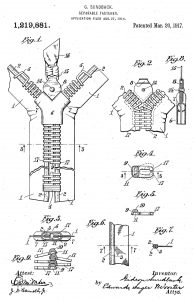A patent grants inventors exclusive rights to their idea. With a patent in place, inventors have the right to allow or prevent others from using their ideas.
Patent protection is regional. You can file for a patent in the UK, but it will not prevent others from marketing your idea in other countries except you also file a patent in such a region. You may want to seek other ways of protecting your intellectual property if you want more control over how it is used around the world.
Declaring a patent in the UK is quite easy and costs GBP £230 – £280.
Originality
 Patents are only granted to invention or ideas that are novel – never before seen or bearing no similarities with any other invention. For example, the idea of an online casino exists already, so if the MrPlay casino or a website advertising it wanted to file for a patent, it would not be possible.
Patents are only granted to invention or ideas that are novel – never before seen or bearing no similarities with any other invention. For example, the idea of an online casino exists already, so if the MrPlay casino or a website advertising it wanted to file for a patent, it would not be possible.
To prevent your patent application from being declined, you should research properly to ensure your idea or invention is not already made public. There are lots of patent databases that can help you with this. You may even start right away with your computer using the internet.
Prepare your patent application form.
Once you’re convinced about the uniqueness of your idea, you can begin the application process. This can be done alone, but we advise you hire a professional IP advisor.
Your patent application form must contain
- A written description of your idea, detailing how it works and how it can be replicated
- A diagram to illustrate your invention
- Your legal claims
- A summary of all the essential aspects of your invention
Once your application form is ready, you can obtain the form 1 ‘request for grant of patent’ IPO form. This should be filled by your IP advisor and should be submitted along with your patent application.
The IPO will then send you a confirmation of receipt. This will come with your application number as well as the application date. You’ll have to request a search of the published patent to ascertain if your idea is new or not. This will be done by an examiner from the IPO.
Once your idea is not found in the publication, you can then proceed to pay your application fees. Once settled, IPO will perform a preliminary review of your invention to ensure it meets all the requirements for patents. Your patent will then be published and made public once it passes the examination. This usually takes about 18 months from the time of application.
Once your invention is published, you must send a form to the IPO requesting a substantive examination of your invention which should be carried out within 6 months.
The IPO will then go through your application again and advise if any part of it needs to be amended and if not, will grant you your patent by sending you a patent certificate.
A patent is no guarantee that your invention wouldn’t be plagiarised. It only gives you the right to take legal action against infringement. Once your patent is granted, you must search out and take legal action against those using your patented idea without prior permission.
